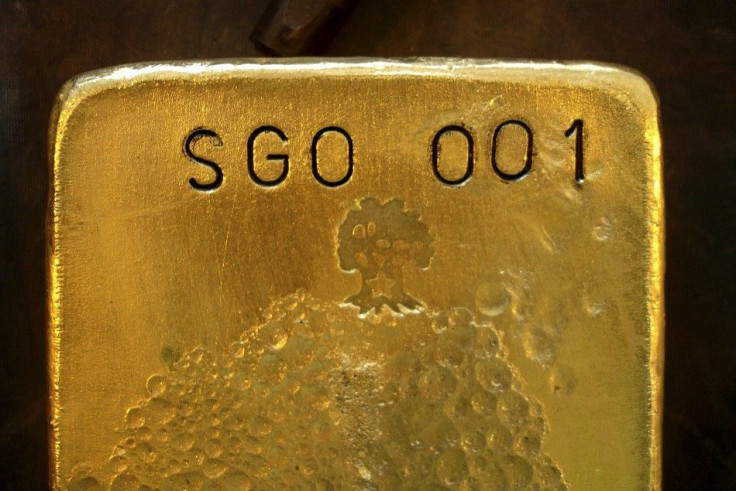Gold Prices Lifted, Lowered by Global Forces

Gold prices hovered in a tight range Thursday as bullish and bearish forces pinned the yellow metal to a virtual pricing standstill.
From start to finish in CME Comex floor trading, gold for December delivery, the most actively traded contract, did not move more than $102, up or down.
On reason was surging stocks, which put a lid on gold price movements.
Equities surged on a pair of economic reports that could have been much worse. The Labor Department said initial jobless claims, calculated on a four-week moving average, fell a mere 5,250 to 417,000. The Commerce Department revised the second quarter's gross domestic product slightly higher, to 1.3 percent from 1.0 percent.
Gold is going to be predicated on growth. The inflation fears have been taken off the table with regard to gold, which is now driven by fear and risk. Positive growth globally will weigh on gold, in the short term, said Tim Kelly, managing director of IBTRADE.
Stocks also rose on growing suspicions that the Federal Reserve is going to intervene soon. Fed Chairman Ben Bernanke told a Cleveland audience the nation's economic woes are now critical, a characterization some analysts took to be Bernanke establishing a public rationale for more central bank intervention.
This unemployment situation we have, the jobs situation, is really a national crisis, Bernanke said. We've had close to 10 percent unemployment now for a number of years and, of the people who are unemployed, about 45 percent have been unemployed for six months or more. This is unheard of.
Finally, equities got an early pop from German lawmakers voting to strengthen the European Financial Stability Facility by increasing Germany's guarantees of the bailout fund to $287 million from $168 million. The EFSF is intended to help recapitalize banks, buy bonds and offer loans -- all to save European banks from the contagion of a Greek default.
Other developments put a floor under gold price movements.
One is continued skepticism that Europe will be able to protect its bank from the damage of a Greek default and even prevent defaults by Spain or Italy. Such skeptics see Germany's vote as a one of many, many steps that must be taken before the crisis passes.
The German parliament is voting for too little, too late, Fredrik Erixon, head of the European Centre for International Political Economy in Brussels, told Bloomberg. Merkel can't possibly believe this is the final point in a rescue package that will calm global markets and lead us out of the crisis.
Secondly, recent gold price drops have led to strong physical demand for gold in Asia ahead of the week-long national holiday in China, Barclays Capital said in a note. Indian buyers are also increasing purchases.
A weakening dollar also helped, especially early in the trading session.
Finally, investors in exchange-traded funds backed by bullion, like SPDR Gold Trust and iShares Gold Trust, kept gold from falling much because they have not been selling, despite recent share price declines. Since Sept. 5 the spot price of gold has fallen from $1,905.56 to about $1,624.
Gold slipped 80 cents to $1,617.30 , a 0.05 percent slide. Gold for immediate delivery fell $2.90 to $1,614.24.
Silver rose 39 cents to $30.52, a 1.3 percent gain, while silver for immediate delivery declined 16 cents $30.36.
© Copyright IBTimes 2024. All rights reserved.






















